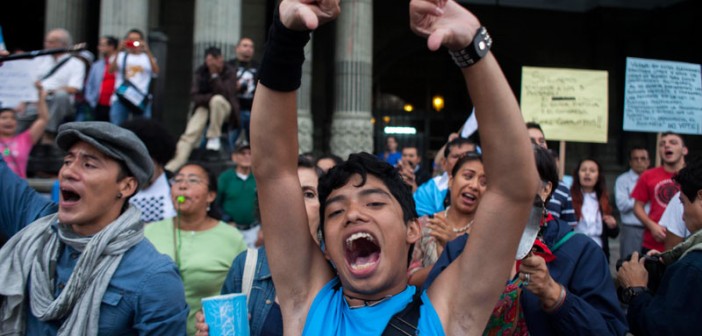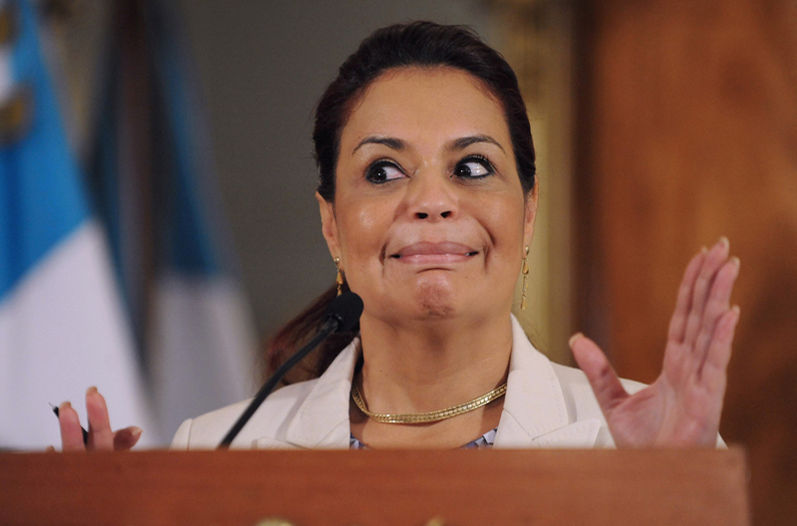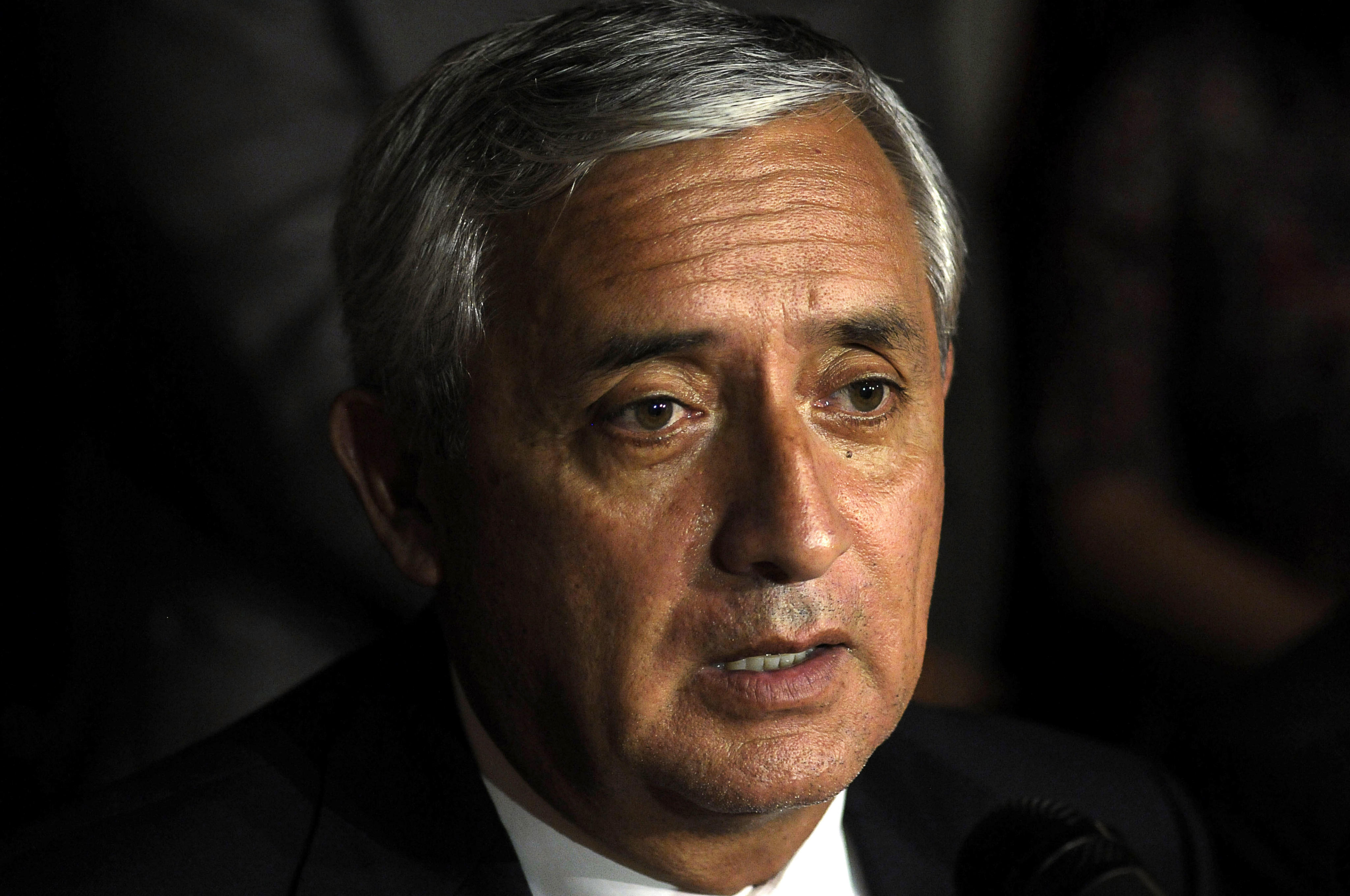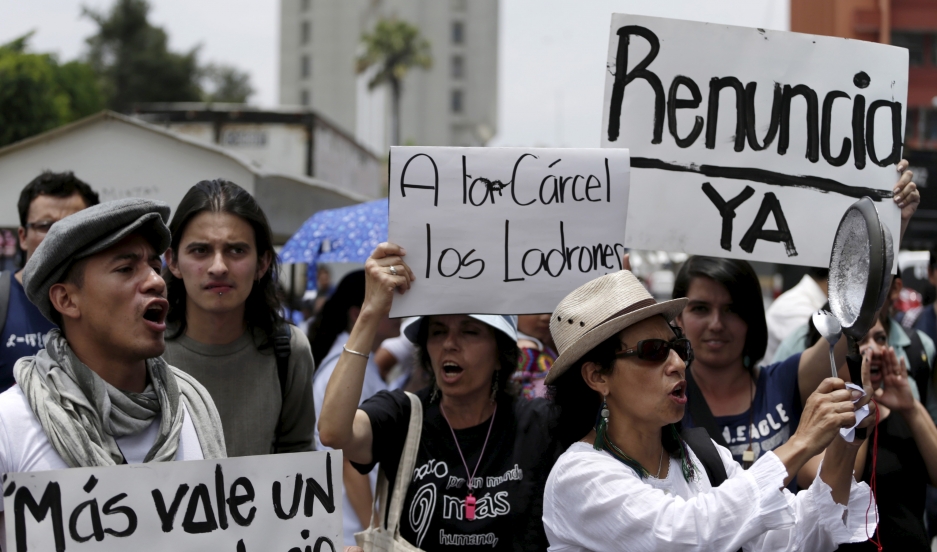Situation Breakdown
From 1970 to 1995, the country of Guatemala played host to the “La Red Moreno” (Moreno) network, a cohesive and powerful contraband ring made up of dirty military, police, and other government officials. It is said that ring members would confiscate black-market shipments of arms and drugs, and then force the owners to pay large sums of money to recover their goods. It has been cited as one of Guatemala’s “hidden powers”, because it was mainly made up of insider military and intelligence officials who were privy to classified information concerning the country’s civil conflict.
However, though the Moreno group ceased to officially exist in the mid-1990s, the Guatemalan customs system never actually stopped its sketchy dealings. Last year, the UN launched an investigation into the Guatemalan customs system, and 86,000 wire-tapped phone calls later, it uncovered “La Linea”, a newer graft network named after the hotline that businesses formerly used to contact members of the Moreno network. Heard in the calls were references to “Number One,” “The R,” “Number Two,” and “The Lady”. The UN commission believes that these were code names belonging to President Otto Pérez Molina and Vice President Roxana Baldetti.
News of the scandal first broke in April, and the International Commission Against Impunity in Guatemala (CICIG) Commissioner Ivan Velasquez stated the following at a May press conference: “The customs fraud structures that were dismantled yesterday have operated since the Moreno network in 1995, and never disappeared.”
What’s Happening Now?
Molina is accused of having perpetuated the actions of the ‘Moreno’ network, with much evidence showing that he played a key and leading role in the operations of ‘La Linea’. Baldetti stepped down as Vice President in May, after the details of the scandal first became known. Her top aide, Juan Carlos Monzon, who is accused of running the bribery scheme, is currently a fugitive.
Baldetti was in the hospital on Friday when she was met by a judge who informed her of the charges against her – illicit association, fraud and graft. She was then transferred to the Matamoros military barracks in Guatemala City. Her bank accounts have been frozen and there are injunctions on the eleven properties that she owns.
On Saturday, thousands of Guatemalans gathered in protest in the Guatemalan capital’s main square, waving national flags, setting off firecrackers, and demanding that Molina resign, shouting “Otto, thief,” “Get out, Otto” and “Resign – and now!” One citizen, Jose Catalan, commented: “The people are asking for the resignation of the most thieving government in history led by [Molina].” He was holding a banner that read “Resign already Otto your prison awaits.”
On Sunday, Molina apologized for the scandal in a prerecorded address on national television, but has maintained his refusal to resign as President, saying: “I declare categorically that I reject any link to the scandal or having received money from that money-defrauding operation. My conscience, in that sense, is at peace. I will show my face and show before the institutions, that by law is required, through the necessary process, that I have not been a part, and even less a receptor, of those ill-gotten funds against the Guatemalan people.”
However, even business chambers that normally support Molina have apparently asked him to resign. Most of his cabinet stepped down from their positions over the weekend to send a clear message of their own, with former economy minister Sergio de la Torre iterating: “we can no longer continue in this government”. Investigators are currently trying to revoke the President’s immunity from prosecution in the case, as CICIG had attempted but failed to impeach him on Friday.
This Monday, prosecutors alleged that Baldetti accepted $3.7m in bribes. During her hearing, a crowd yelled “Corrupt! Thief!” outside. Presiding judge Miguel Ángel Gálvez clarified that the allegations were not formal accusations, stating: “The only thing they are doing in legal terms is to state that there is a reasonable suspicion.” Prosecutors claim that Baldetti kept 50% of the bribe money acquired by the graft. She has denied any wrongdoing.
So far, 20 people have been arrested so far in connection with the corruption network.
What’s Next?
Because of the current situation, it’s obvious that Molina is unable to properly attend to the country’s needs. Phillip Chicola, Guatemalan political analyst, suggested the following: “Since the scandal broke in April, the President has been more interested in trying to survive the last months of his term than governing. The government here in Guatemala is paralyzed because the President right now is more worried about staying in power.”
Fortunately for the country, Molina’s term is soon coming to an end, as there is an upcoming presidential election in the country with the first round of the vote due on 6 September. As long as Molina has presidential immunity, he probably won’t step down from his position. However, Guatemalan law dictates that he can’t run for re-election, so he soon will have no choice but to relinquish his presidency and face authorities.









